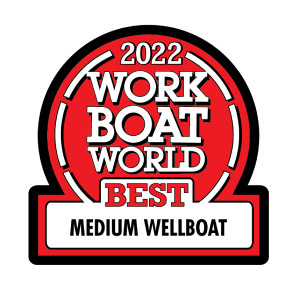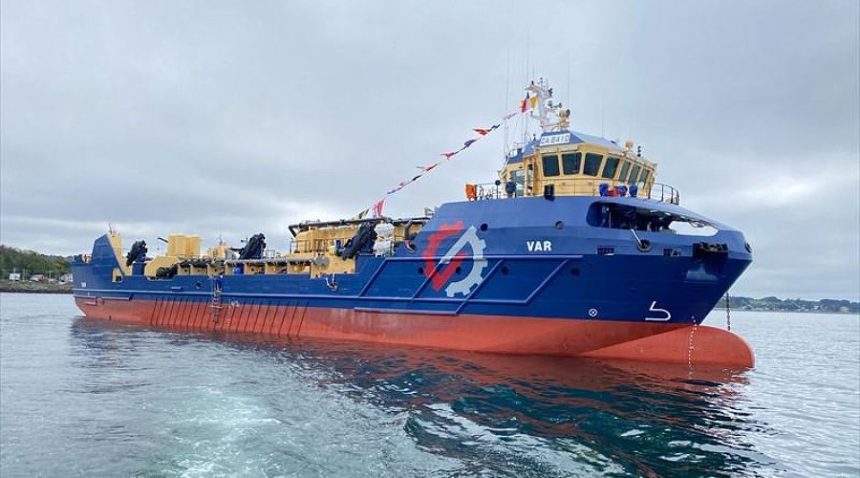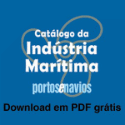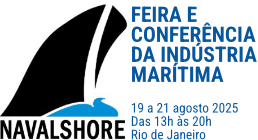Nosso Wellboat VAR (C421), foi agraciado com o prêmio de Melhor Wellboat de Médio Porte de 2022. Essa premiação foi realizada pela renomada revista Baird Maritime. Parabéns a todos que fizeram parte deste resultado!
It is interesting and encouraging that this year, two of the best fish farm wellboats were built for Chile, one in Brazil, and the other in Norway. The Brazilian vessel has been exceptionally well built to a very highly developed design. It will do very well.

“The vessel was designed to be one of the most efficient and safe on the market, equipped with the latest technologies and with a high level of redundancy, similar to those of offshore vessels,” the Detroit Group told Baird Maritime. “Var has hardly had its operation interrupted by a failure or the unexpected behaviour of some equipment, which has been proven since it kicked off in early 2022.”
The builder said that, as a result of a collaboration between one of the main wellboat operators in the Chilean market (Navieira Detroit) and one of the largest shipyards in South America (Detroit Brasil), both of which are companies of the Detroit Group, the vessel was designed and built to meet the strictest sanitary requirements of Europe and the Americas; to minimise loading and unloading times; to transport salmon in a fast and safe manner; and to offer control and comfort to the crew.
“The newbuild also boasts the Detroit Group’s proprietary fish handling and welfare system, which allows the operator to monitor and control all operational variables in real time. A specially customised power management system meanwhile ensures safety and energy efficiency in wellboat operations, in addition to making the propulsion system more robust and therefore more reliable.”
The builder said the main challenge in the vessel’s construction was that critical processes needed to be completed in both Chile and Brazil.
“The vessel was built in Brazil, where we also did all the sea and harbour tests to ensure performance, safety of navigation, and compliance with class protocols. It then needed to be brought to Chile, where we completed the commissioning and made the necessary adjustments prior to the start of operations. For the latter, our team remained in-country to provide the necessary assistance during the first few months.”
Another challenge was due to the vessel’s own fish handling and welfare system, particularly in its development and integration. The effort was ultimately successful, and the results of the system’s operation exceeded the builder’s expectations.
The fish handling system was a necessary addition, as the Detroit Group recognised fish health and welfare are trends that are becoming increasingly important, and therefore emphasis was placed on these two key aspects.
“Adhering to the health and welfare requirements of aquaculture is undoubtedly the main challenge for wellboat operators and builders,” the company told Baird Maritime. “Historically, we have perceived a constant evolution in these requirements. They are becoming increasingly rigorous and there is no reason to believe there will be a change in this trend.
The company added that the aquaculture sector is also impacted by the need to make vessels more efficient and capable of reduced emissions. Global pressure and the targets set by the IMO drive a strong need for improvements in regulations and technologies in the short term.
The Detroit Group called 2022 a “considerably good” year. Although the company focused its construction efforts on four tugs and two wellboats, there was still capacity available, hence the expectation of additional demand in the near future.
“Even with the pandemic and its effects seen in recent years,” the company told Baird Maritime, “we believe that the outlook for aquaculture is positive and that this ends up being reflected in the introduction of vessels involved in this supply chain. In recent years, we have noticed a good number of vessels coming into this market and there is no reason to believe that this trend will change in the short term.”
The company added that it predicts a trend of increased global consumption of fish protein, and so it is slated to deliver to additional sister vessels built to the same specifications as Var.
“The aquaculture market has always been linked to the health, the safety, and the welfare of fish. We expect these aspects will continue to influence advances in technology as well as the implementation of new regulations related to this sector of the fishing vessel industry.”
With regards to the regional maritime industry, Detroit Brasil expects steady growth, especially in the service vessel market. The offshore oil and gas support sectors are keeping up, hence the expectation of increased demand for offshore wind support vessels. The local market for tugs is also expanding, leading to increased newbuilding activity over the next few years.
“Because of this, it is necessary to expedite legal landmarks for these markets. We are confident that, as requirements and offering are more aligned, many newbuilding projects will come up just as what we have seen at the beginning of the previous decade.”





